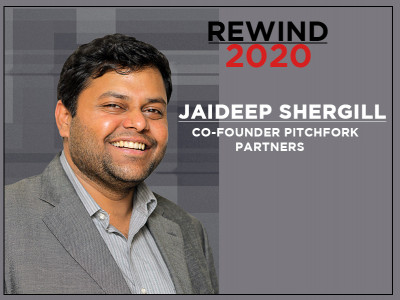
Corporate activism is here, and it’s working
Authored by Jaideep Shergill, Co-founder, Pitchfork Partners
While brands have historically focused on their positioning, it’s no longer good enough for an audience that’s increasingly driven towards conscientious purchasing. Consumers genuinely care about societal issues and authenticity, and they’re supporting brands willing to speak up for a cause.
Let’s look at the audience everyone is obsessed with nowadays – millennials. It’s a large demographic that is aware of and dealing with serious problems – climate change, discrimination, an economic crisis, etc. They expect brands to not just speak up, but make a difference. They want to see concern for something beyond profits. This, by the way, is reflected even in their employment choices – they prefer to work for brands seen to be making a positive difference.
One of the earliest brands to understand the power of taking a stand was The Body Shop. Its founder Anita Roddick made it clear that she not only wanted to deliver great products but also boost fair trade and environmental protection. The products were great, of course, but many consumers were attracted to them primarily because of the brand’s activism.
The Body Shop is just one example of companies that have a larger purpose than profit being seen as leaders. No wonder more and more companies are looking to impact our biggest societal problems.
Activism, it seems, is hip and good for business.
Activist business leaders are coming into their own, and getting the right kind of publicity. Apple CEO Tim Cook spoke up for LGBT rights and Starbucks founder Howard Schultz has been outspoken about racism after an incident at one of the coffee chain’s outlets.
However, there’s more to it than idealism. There are real business interests at stake.
Within five years, 75% of the global workforce will comprise millennials for whom, as mentioned earlier, social and environmental issues matter. As an activist brand, you show that the ‘social value proposition’ is an important component of your employer value proposition.
There’s also a direct impact on revenue. Consumers support and actively promote brands that they feel have a conscience. Nike’s campaign with American football star Colin Kaepernick – who protested against racial injustice, police brutality and systematic oppression in the US – hit a chord. The campaign went viral with more than 24 million views on YouTube alone and boosted Nike’s online sales 31% that week.
More recently, several of the world’s largest corporations, led by Unilever, announced that they would stop advertising on Facebook because it wasn’t doing enough to curb hate speech and divisiveness. Facebook’s shares plummeted 8.3%, wiping out $56 billion in market value and $7.2 billion off founder Mark Zuckerberg’s personal wealth. Facebook was forced to announce changes it had long resisted to curb fake news and hate speech. Zuckerberg promised to also ban ads that claimed certain races, religions and sexual orientations were public threats.
Such activism is being seen a lot more after the 2008 economic crisis. At that time, corporations were blamed for many of the world’s problems and they decided to show that they could set things right too.
Also, social media has enabled participation in such activism. People across the world can join such causes, which in turn enhances brand preference. So, as brands make more such connections, their activism is here to stay.








